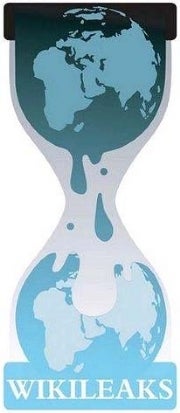Wikileaks’ Afghan War Diary: An FAQ


The world is still abuzz over the whistleblower site WikiLeaks, and its publication of more than 75,000 classified documents detailing the war in Afghanistan. WikiLeaks had previously sent the documents, along with 15,000 as yet unpublished files, to three newspapers worldwide that published separate reports about the documents.

Some are saying the documents (dubbed the Afghan War Diary) are equal to the Pentagon Papers in their importance, while others believe the leak won’t change much at all. It’s likely too soon to tell what the overall impact of these documents will be. But if you need to get up to speed on what’s been going on, here’s a quick FAQ about the documents, WikiLeaks and what’s going on with the data.
What is Wikileaks?
WikiLeaks is a Web site with servers all over the globe that publishes classified documents provided by whistleblowers and other anonymous sources. WikiLeaks is not affiliated with Wikipedia, although the two sites use the same software.
What has WikiLeaks done before?
In April, WikiLeaks released a classified video from 2007 showing a U.S. airstrike in Baghdad that left twelve people dead including two journalists from Reuters news agency. Other notable information leaks include a peak into the private e-mails of former U.S. vice presidential candidate Sarah Palin, and the publication of sensitive documents from the Swiss bank Julius Baer.
What has WikiLeaks released this time?
WikiLeaks obtained more than 90,000 military incident and intelligence reports detailing the U.S. military’s actions in Afghanistan. Dubbed the “Afghan War Diary, 2004-2010” WikiLeaks has publicly released 75,000 of these documents for public inspection so far. The site says the remaining 15,000 documents were held back at the request of the site’s anonymous source in what WikiLeaks call a “harm minimization process.” WikiLeaks says the documents “will be released, with occasional redactions, and eventually, in full, as the security situation in Afghanistan permits.”
Before publishing the documents on its site, WikiLeaks also distibuted the War Diary to three newspapers: The New York Times, The Guardian and Der Spiegel.
What is the government reaction?
So far the government has only issued statements of condemnation about the leaks, and has not announced any investigations into the release. The White House called the leaks “irresponsible” and said that WikiLeaks “opposes U.S. policy in Aghanistan,” according to Politico. Chairman of the Joint Chiefs of Staff Admiral Mike Mullen was “appalled” by the leaks and said his staff is currently examining the documents, according to Voice Of America. National Security Advisor General James Jones also released a statement saying, “The United States strongly condemns the disclosure of classified information by individuals and organizations which could put the lives of Americans and our partners at risk, and threaten our national security.”
What is being done with the data?
The New York Times has published an extensive set of articles under the title, “The War Logs,” and Der Spiegel has a similar set of reports in English on its Website. The Guardian has compiled a downloadable spreadsheet and an interactive map detailing over 200 key events from the documents.
How big of a bombshell is this?
Whether the Afghan War Diary will have any long lasting impact on military actions in Afghanistan is unclear. Berlin-based Der Spiegel wonders if “the unvarnished portrayal of the fighting…[has] the potential to wreck all hopes that the international community can bring peace to Afghanistan.” However, others doubt the impact will be particularly serious. Adam Weinstein writing for Mother Jones said the leaks were “nothing you didn’t already know if you were paying attention to our wars.”
The Washington Post is likewise doubtful the leak will impact the war.
What will be the impact on WikiLeaks?
This is not the first time WikiLeaks has been under fire, and some of its targets have tried to shut down WikiLeaks without success. Many observers are wondering if partnering with sites like WikiLeaks will become an important part of journalistic endeavors in the future. That’s an interesting idea to consider, but then again, considering the number of high profile leaks the site has been involved in so far, I’d say the future is already here.
Connect with Ian on Twitter (@ianpaul).






